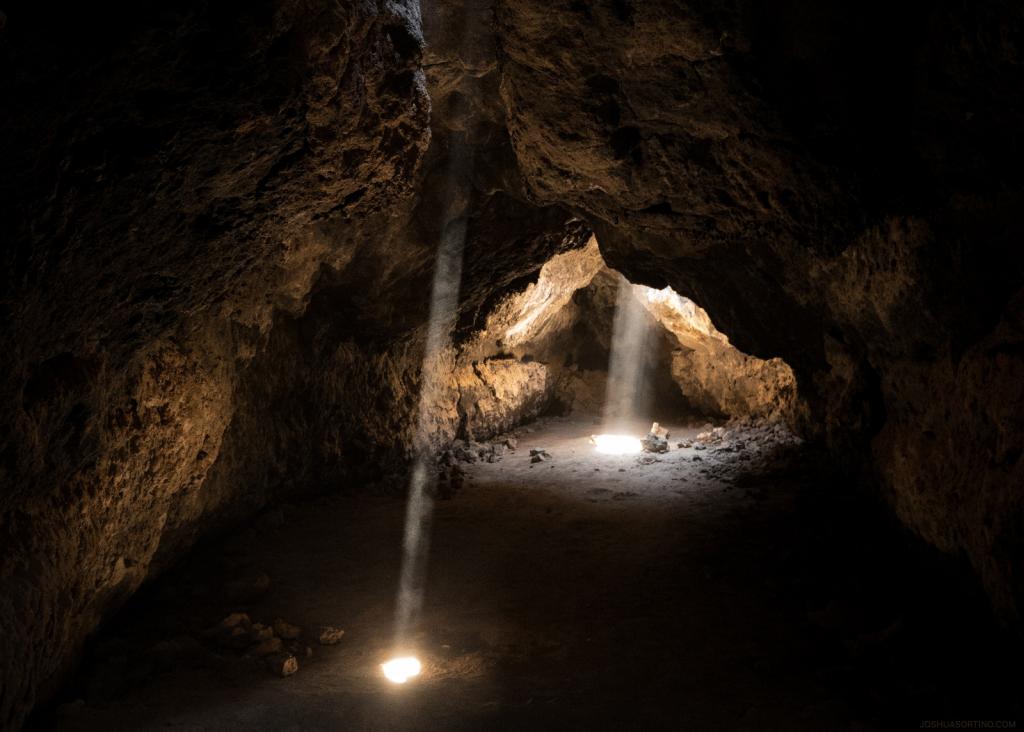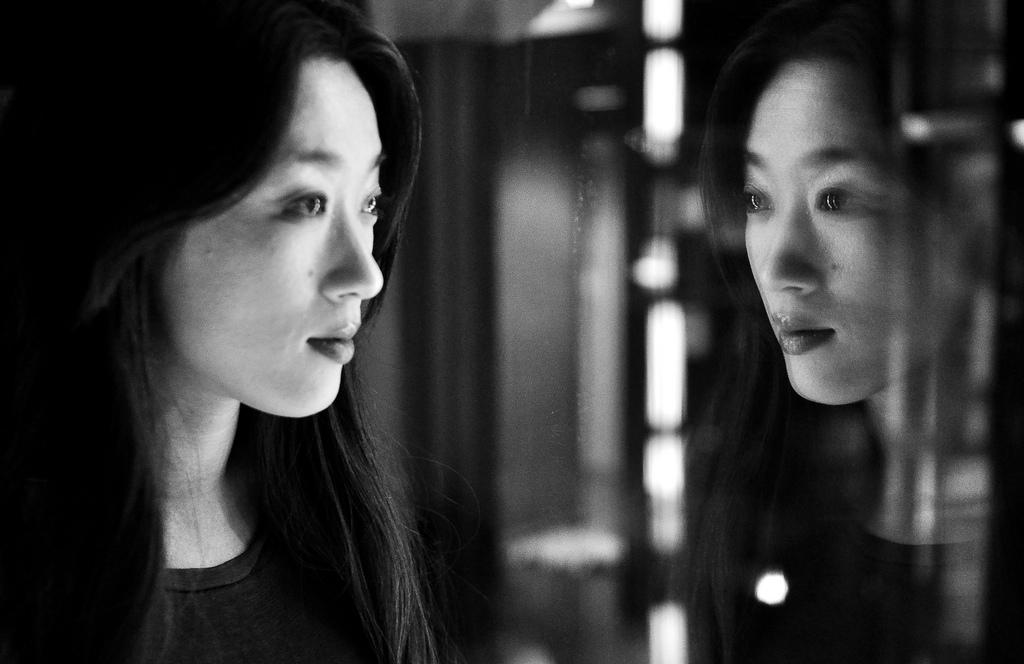I have lived on the lip
of insanity, wanting to know reasons,knocking on a door. It opens.
I’ve been knocking from the inside.”― Jalaluddin Mevlana Rumi – مولوی
This quote is the first thing I recognized from the outside world as being anything close to my experiences with shadow work and the mystical experiences it brings. I could have just looked inward at anytime, but everytime I did, every time I lugged the lamp of my consciousness over to a new place, the deepest parts of my shadow flee and hide beneath my lamp. A mystery of shadow work is realizing that the act of ‘seeing’ causes the shadow itself and provides a place for the ego to flee. A Coincidentia Oppositorum.

The Shadow is the part of the mind where things we don’t face will get repressed into. It is the simple act of making the unconscious conscious. Fasting teaches us this. When we feel hungry like it is the end of the world, pushing through reveals that is a chemical narrative. When we fast we learn to tell ourselves a new story, one of our own choosing.
We are raised within emotionally dependent relationships with our families or institutions. Familial social interactions provides vectors for us to try to interpret meaning from the world around us. When we are shamed, aren’t accepted, or aren’t appreciated for something we appreciate, then by instinct we work to split ourselves between what is acceptable and what is shameful.
The road up and the road down are the same thing. ― Hippolytus, Refutations 9.10.3
While this is sometimes a healthy act, the problem is that we don’t deal with what is rightfully shameful and reject shame when it isn’t deserved. Another problem involved with the shadow self, is that these parts of our identity aren’t dealt with properly, they’re suppressed, repressed, rejected and denied.

In my Celtic mysticism, we are many spirited. And we treat spirits with hospitality, even inner ones to propitiate them. Sitting with our shadow elements in this kind of treatment is the opposite of denial and repression. And these spirits are invited to stay or go. We have words with them, we seek to understand them, we treat them. We face and deal with them.
In Paganism and Witchcraft, the cunning folk and learned Druids all are kinds of seekers of Truth(Fírinne,Rta,Orlog), and to turn potential in to good cosmos. We do this by making sacrifices, stirring the pot, and weaving wyrd and dán. This can only be done well from our seat of power, which takes much work to find, especially work on the Shadow. There is a dual class system with witches who’ve not done their shadow work on the lesser end of the power scale, and with those who have on the higher end. Shadow work is part of Adepthood in magic, mysticism, and religion. It’s not personal and its open to everyone.
Consciousness is seen as a light. The Shadow is only dark because it is the part of our mind which we cannot see. Working with shadow has nothing to do with dark emotions, dark spirits, and everything to do with Blindness. It will involve evil spirits if there are evil parts of ourselves in our shadow, but for most people, that’s not the case.
Cold things grow hot, a hot thing cold, a moist thing withers, a parched thing is wetted. ― DK B126
That isn’t to say shadow work isn’t the most painful work we’re going to do. It works on the ego and identity, it lessens it, and if we have cherished ideas about ourselves, then we will have those ripped from us. And for that reason, I do not recommend it to anyone who doesn’t have professional psychologist to consult about Shadow work.
Shadow work can lead to madness or death, hinting at it being what turns the cauldrons of Fílidecht.
There are some days I wish I hadn’t ever done any of this and other days I am glad I did. There are no added benefits to your life, only added benefits to your being which in turn will affect your life.
Success is as dangerous as failure. Hope is as hollow as fear. ― Lao Tzu, Tao Te Ching

Shadow work is simply making ourselves conscious of all our behavior and inner workings which are unconscious. When we ascribe meaning to all of what we make conscious from shadow, we craft a new narrative in place of older ones that have got us here but are no longer working for us. Shadow work involves revisiting the meaning that is there and either confirming it and additions being made or entirely reworking that gnosis and those beliefs.
There are many ways to reduce the amount of shadow we have. I personally distrust everything and confirm everything in an act I call ‘Looking Behind’ the surface.
I don’t follow an untrained gut or a gut with its own will. As the conscious rider to the horse of my subconscious, if it kicks and neighs willy nilly, I am no master of any magical arts. I’m not a master of myself and I’m not a master of my Craft. We seek to cause an independence of barriers between thought, emotions, and feeling, physiology and the observer who watches these things. We call this Dismemberment. Initiation rituals of Anglo-Saxon witches are said to involve this kind of dismemberment. This allows us to isolate issues as thought issues, emotional issues. subconscious issues, et cetera. Afterward we reintegrate these selves into one again. The horse and rider are trained to act as a unit and can go where we are potentialed to go. The horse only kicks and neighs when there is danger and something to throw lots over.
The real work in the process is self love. We must be adamant and forceful in believing that anyone given the factors and upbringing and physiology that we have would also make all the same choices as we did up to the point of dealing with our shadow. We can totally forgive ourselves for all of it after we face it, and then we can let it go.

We must let go in an investment in our identity and instead invest in our being. It is better to just be a kind person than to think of ourselves as a kind person.
When we feel emotionally uncomfortable analysing something, it may be a sign that we’ve struck an assumption that our subconscious knows about and is clinging to. It does this so that it can avoid looking at Shadow all together. Shadow is upheld by these Pillars of Assumptions which we cling to yet we know we know. We don’t make any of this conscious.
A man may not consider himself arrogant if he identifies as an easygoing person who gives others lots of social capital. However, he may take pride in ignorance on topics his more knowledgeable friends hold dear which he things are garbage. His dismissive attitude toward their prized interests and theories, could be stemming from his untested assumptions and unvisited things in his shadow. Isn’t Witchcraft itself this? Its the height of arrogance to judge something off of perception alone without Looking Behind the surface in real ways which produce real truth.
The coward believes he will live forever, If he holds back in the battle, But in old age he shall have no peace, Though spears have spared his limbs.” ― Hávamál – The sayings of the high one

“Am I doing my best at life?” is a question that is based on assumptions that best is all that matters, or that our best performance is congruent with quality development of self. There is such a thing as spinning our wheels uselessly and needlessly. We could ask ourselves, “Am I putting my best into things that develop me spiritually.” Why do we invest into needless areas that do not bear any fruit? Why are we too afraid to admit fault and back off of our investments? Am I aware that when I won’t back off of an investment because I feel I will be judged poorly that I am upholding a status quo to judge others that way when they won’t? So if I’m hard on myself, am I aware that I am actually an asshole like any other asshole? Isn’t backing off of something I’m truly invested in sometimes a valid way to learn and develop my potential? Should I also back off of investments which do bear fruit? Why are these valid question?
54. Darkness yields to light
Sorrow yields to joy
An oaf yields to a sage
A fool yields to a wise man
A serf yields to a free man
Inhospitality yields to hospitality
Stinginess yields to generosity
Meanness yields to liberality
Impetuosity yields to composure
Turbulence yields to submission
A usurper yields to a true lord
Conflict yields to peace
Falsehood yields to truth. ― The Testament of Morann, Mary Jones
People really don’t like when you describe their logical and mental processes as algorithms. But they might not balk at the phrase, “mathematics describes all of nature”. Here we have a conflict in the mind because we’re saying the same thing. Its an assumption that I am likening anyone to a robot which produces a rejection of the idea that our mind is full of algorithms. In fact, robotic minds might operate exactly like human brains, their EM field might call into that being a soul. The assumption robots will be automatons and not be as alive as the rocks, trees, you or me, is an unvisited assumption. If we believe something without evidence, and are unwilling to put a big ol’ maybe on it, then we are covering something in our shadow that our unconscious knows is there but doesn’t want to visit.
“O Cormac, grandson of Conn”, said Carbery, “Who are the worst for whom you have a comparison?”
“Not hard to tell”, said Cormac.
A man with the impudence of a satirist,
with the pugnacity of a slave-woman
with the carelessness of a dog
with the conscience of a hound
with a robber’s hand
with a bull’s strength
with the dignity of a judge
with keen ingenious wisdom
with the speech of a stately man
with the memory of an historian
with the behavior of an abbot
with the swearing of a horse-thief
and he wise, lying, grey-haired, violent, swearing, garrulous, when he says ‘the matter is settled, I swear, you shall swear’. ― The Instructions of King Cormac, AKA Mary Jones
When the narrative is crafted by our inherited assumptions, dogma, and social capital, then we may actually be more of an automaton than the robots of the future. How is our mind not just a complex rube goldberg machine if we’re operating on software given to us? Instead, decide how to feel, think and be based on the best evidence and what is likely. That way, we’ll be a deliberate person. Else we’re just a leaf blowing hither and thither?
It can be argued that there are degrees of freewill, and occurs to a lesser degree in persons who operate under inherited and unvisited assumptions. If the way parts of you fall based on the way the dominoes before us fell, and we didn’t inject choice into it, then how can freewill be argued?
Because if the assumptions are the same, the narrative is the same, the emotions and thinking are the same and the actions are the same, all to varying degrees. Achieving the trajectory of someone else’s choosing makes us an aware automaton.
This is why making the unconscious conscious is the most important thing we’ll ever do and never stop doing. Ram Das says you just need to increase your awareness, and you’ll know how to fix everything else.
Techniques for revealing Shadow v Ego
- The Seven Hoods of Dagda Exercise (ego death example)
- The Horse Within Exercise (reveals defensive self)
- Shadow Exercise I (reveal the shadow)
Ongoing Work
- Recognize Defense Mechanisms
- Denial: Rejection of a thought or feeling.
- Suppression: Vague awareness of a thought or feeling, like an initial grin which you might sip a drink to cover.
- Reaction Formation: Reacting in a manner opposite of the feeling, like an initial grin which you turn into a frown.
- Projection: You think your feeling is a quality of the external world. Someone may feel that waiting traffic that agony, not their low patience.
- Displacement: Directing your feelings to some other target.
- Rationalization: Form of denial where you take comfort in a number of explanations which justify the denial.
- Intellectualization: Super intellectualized rationalization.
- Undoing: Saying sorry to much. Saying sorry for saying sorry too much.
- Isolation of affect: Thinking the feeling but not really feeling it.
- Regression: Throwing spit wads, name calling, teasing.
- Sublimation: Redirecting the feelings into a social activity.
- Journal all events that are traumatizing or talk about them.
- Terrible Dreams
- Traumatizing stories(family, bible stories, movies, tv)
- Abuse, being bullied, etc.
- Trust Exercises, Power loss, feeling of helplessness or being at the mercy of others’ who actually love and come through for you.(you see this a lot in initiation rites)
- With gusto, find out what questions really bother you and ask them of yourself. Journal your answers.
- Look at your patterns and habits
- Look at what irritates you 0 to 60 in 1 second.
- Super focus on what criticism or thanks you find uncomfortable to receive.
- Go into it with no assumptions.
- Don’t run from emotions.
- Practice not denying, rejecting, or suppressing things about ourselves. If we don’t like it, deal with it and work to change it.
Enlightenment is a real phenomenon. The inspiration that illuminates is written about in mystic practices from India to Ireland. If you’ve had this experience, even if only for a second, then you’ll begin to recognize other artists and writers who’ve also had the experience and put it in pop culture and ancient works. From Persian miniatures, to Japanese Wave art, through Moorish arabesques, onto Illuminated texts of the Celtic scribes. Tapasias in practice will light a fire that breaks through the conscious to the unconscious and go onto the Otherworldly Imaginatrix beyond yourself, into the common conscious seas. This is what mystics have always meant by rebirth. With the new perspectives on self and world this phenomenon brings, a Work to be done is revealed.
Enlightenment in a Celtic context is the inspiration of illumination, which for poets or anyone who glimpses it, isn’t the end game of their spirituality, or the doorway to Moksha or Nirvana or Mag Mell. It is the awareness that you’ve not even started to get out of this place of suffering. It only opens sixty of the hundred doors you need to open to be able to enter the mystic experience at will.










